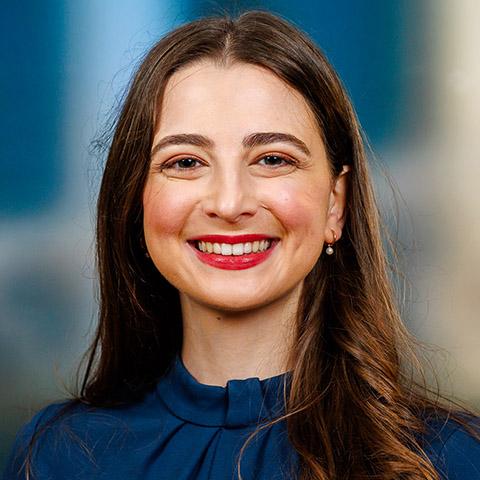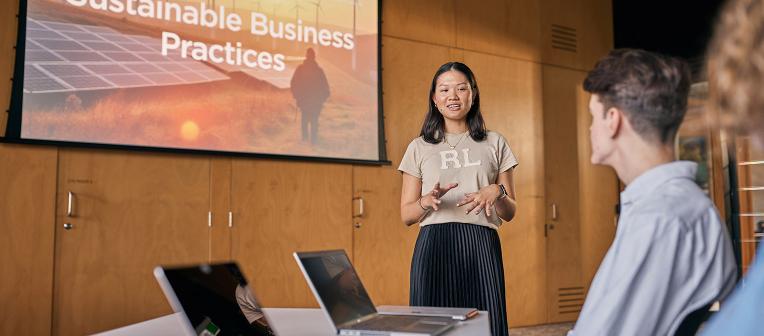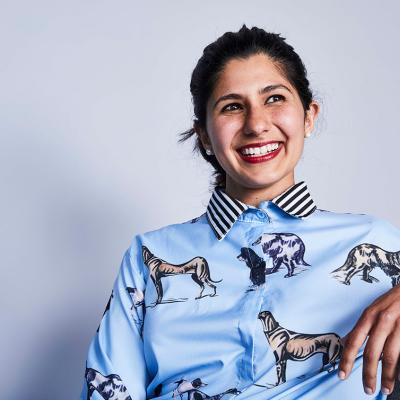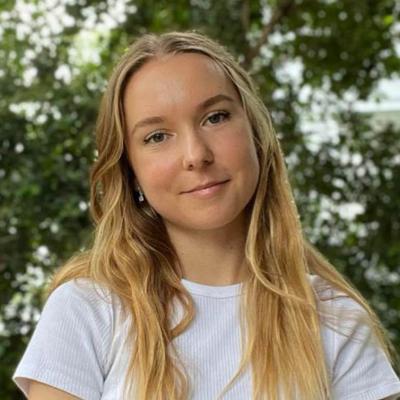A common misconception about careers in economics is that they focus solely on numbers and finance. Similarly, people assume those in economics jobs won’t have opportunities to interact with others or do meaningful work.
But in reality, economics can be a tool that brings people together and helps us solve complex challenges, make decisions and create policies that benefit everyone in society. So, if you want to work with others, and you're passionate about making a difference and helping people, economics could be the field for you.
UQ economics graduates Hamish Greenop-Roberts and Isabella Sciacca now work at Deloitte Access Economics. Below they share their experiences and 3 ways a career in economics provides opportunity for meaningful work and connection.
1. Collaborate with colleagues and clients around the world
The World Economic Forum is an international organisation that promotes economic growth and sustainability. They aim to influence attendees to adopt policies they think are in the interest of a more prosperous and sustainable world. Our team recently did a report with the World Economic Forum, which was a great opportunity to connect with people all over the world.
The report looked at the global value of Earth observation, applying data gathered from satellites across different industries to solve different problems. We ran a survey with responses from over 30 different countries and interviewed different subject matter experts from all around the world to find out how they’re using observation in their industries and in their regions. Working on this project involved a few late-night Zoom calls because of the time difference between Australia and America, but it was a fantastic experience.
2. Engage with clients and stakeholders
At Deloitte, about 90% of our projects involve stakeholder consultation. As an economist, there are endless opportunities to explore the quantitative side of our work. There will always be demand for this type of output.
But equally, there will always be opportunities for economists to engage with industry, policymakers and decision makers. It’s by engaging in this way that we situate our work in the global context and actually make an impact with the analysis we do. Only through this engagement work can we achieve our desired impact.
3. Help governments solve complex social problems that impact many people
The economy is very interconnected. Changing one area can cause different implications – some wanted, some not. It’s not an easy game — it’s a balance.
Economists help governments analyse the costs and benefits of decisions. Their work helps inform government policies across all sectors including health, transport, tourism and education.
Examples of questions economists can help governments and private organisations answer include:
- What might happen if I choose to invest in this particular area of the economy?
- What might happen if I choose to implement this regulation?
- What might happen if we host this event?
For example, if a client or a government policymaker wanted to understand the impact on the economy of a decision like opening a new mine, they might want to understand how many jobs opening a mine would create.
But it's not as simple as that.
Maybe they’re looking at opening the new mine in a region where there are a lot of mines already. This might lead to crowding out and drawing jobs from the existing mines in the area. As an economist, we can use computable general equilibrium modelling to help answer those questions and speak about the broader implications of that decision on the entire economy in terms of employment, inflation and output effects of the other sectors, and so on.
Economics can take you many places and into many jobs across a variety of different industries and topics. With applications across the private, public and not-for-profit sectors, you could work with governments, firms, politicians or private business. Economics also provides the frameworks and research techniques to analyse and address complex problems.
Ready to see what career opportunities in economics you could pursue?
If you study economics at UQ, you'll gain skills, knowledge and connections you can tap into throughout your career.
Learn more about our Bachelor of Politics, Philosophy and Economics (Honours) and Bachelor of Economics undergraduate degrees.
Or double your skills and opportunities to do meaningful work and build connections by studying a dual degree. At UQ, you can combine economics with:
Author: Hamish Greenop-Roberts

Hamish completed a Bachelor of Politics, Philosophy and Economics (Honours) at UQ and is now a senior economist with Deloitte Access Economics. His work focuses on industrial transformation, technology and space. He provides advice to central government agencies, industry and international organisations. His project experience includes policy development, costing and evaluation, economic modelling and forecasting, stakeholder engagement and public reports.
Author: Isabella Sciacca

Isabella completed a Bachelor of Commerce / Bachelor of Economics at UQ and is currently an economist at Deloitte Access Economics. She has a passion for sustainability and climate change. Prior to joining Deloitte, Isabella worked for the Queensland State Government and the International Trade Centre, which is a joint agency of the United Nations and the World Trade Centre in Geneva. Her project experience includes policy evaluation, regulatory analysis, stakeholder engagement and business cases.
This article was produced by UQ based on a Career Pulse presentation delivered by Hamish and Isabella and is published with their approval.





